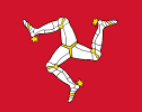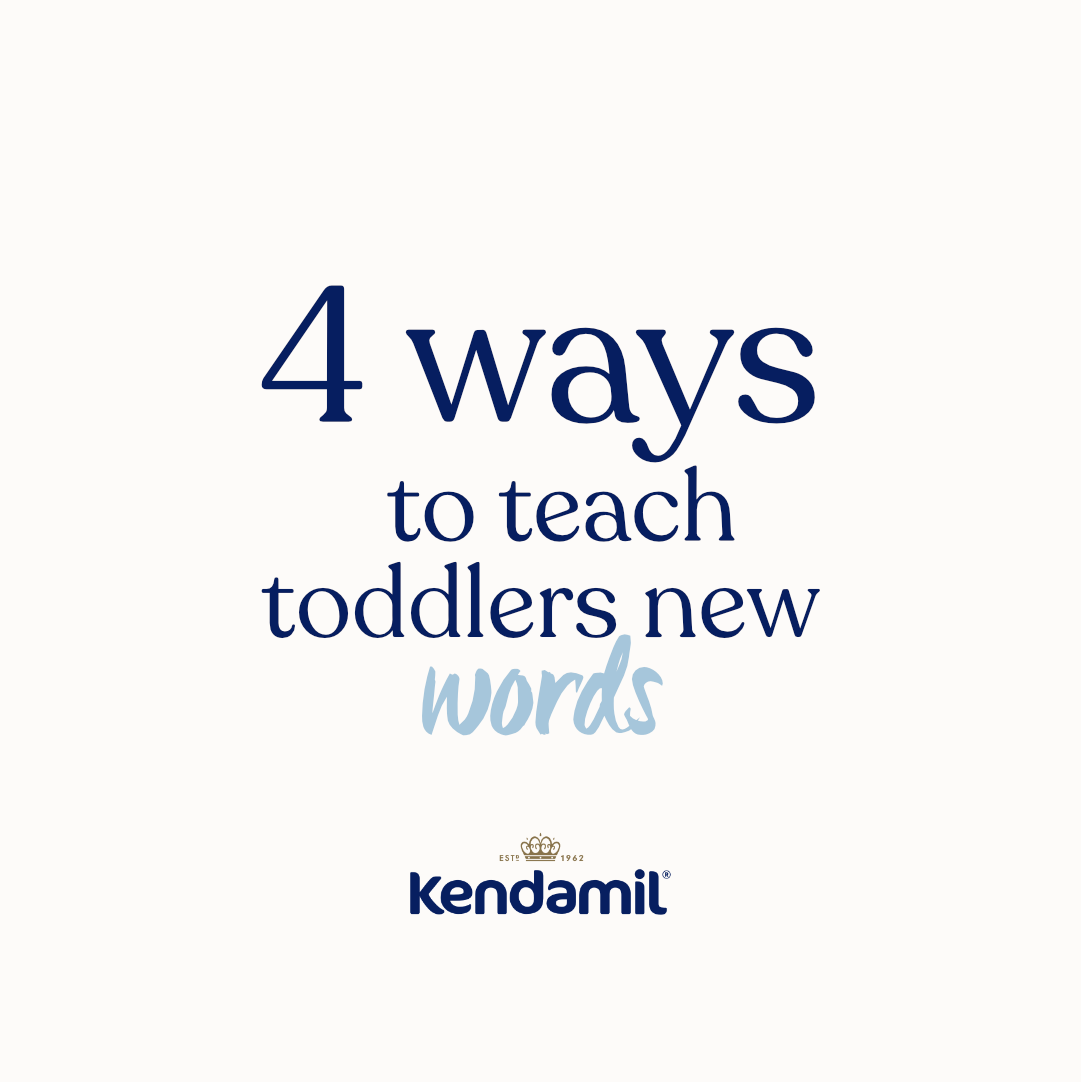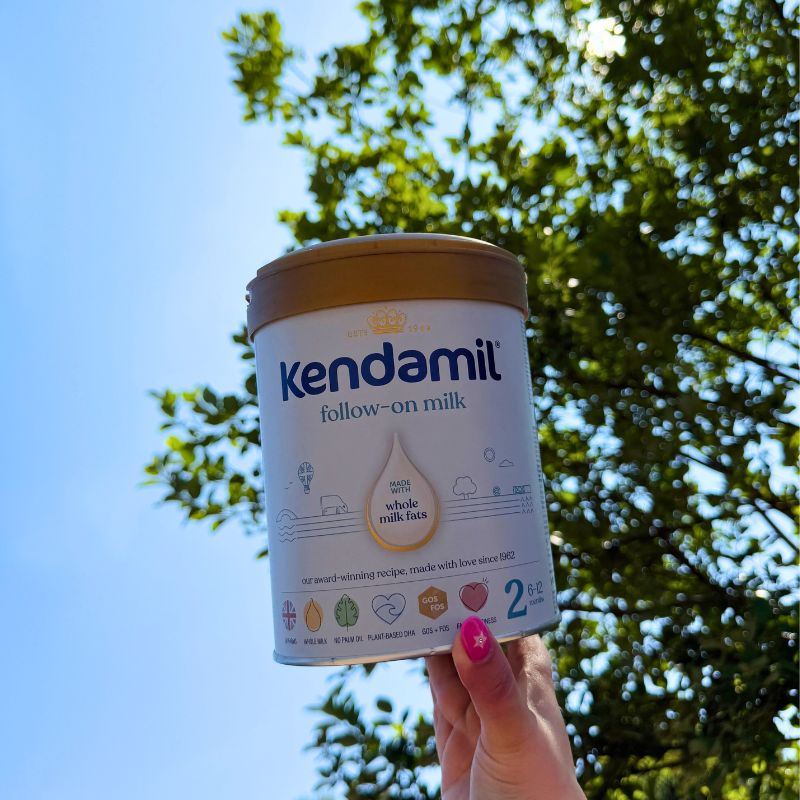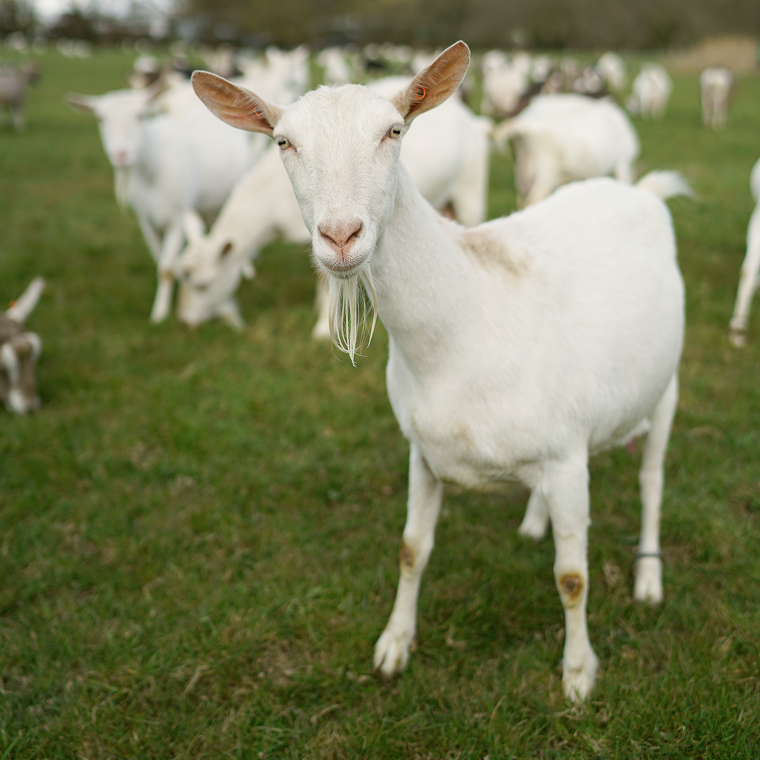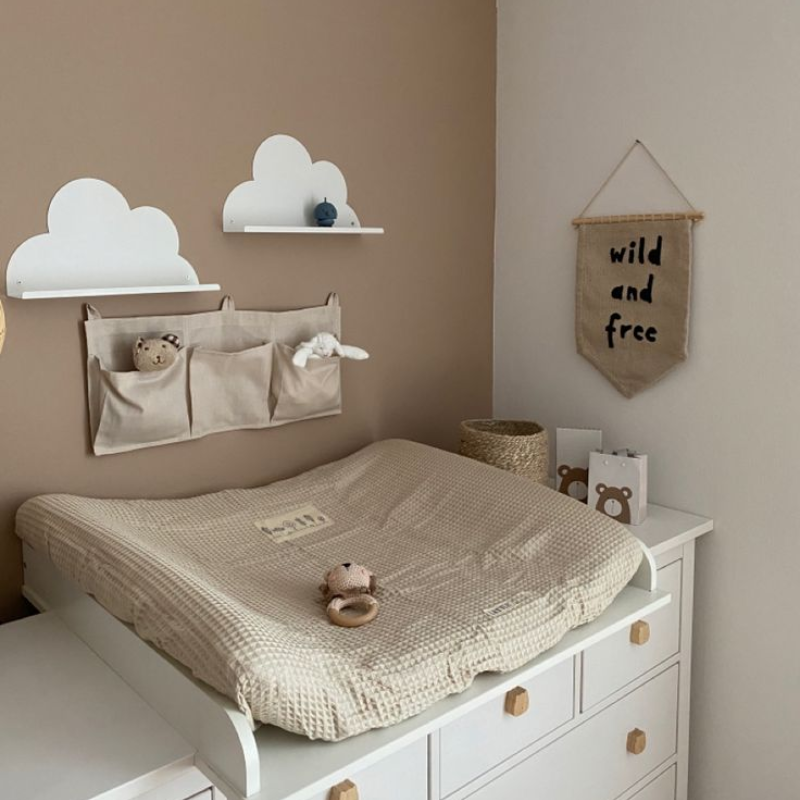It’s such a magical time when they’re on the verge of speaking, isn’t it? Your toddler is finally becoming their own (semi-articulate) individual! And because, here at Kendamil, we’re passionate about all things parenting (not to mention, we’re parents here, too) we've compiled our top 3 ways to get your little one chatting away in no time!
🌟 Introducing: ‘the 4 Rs!’ 🌟
Since we’re talking about helping your little one learn (and we’ll be chatting about the importance of mnemonics and memory/ learning at the end of this article too!) we thought it’d be remiss if we didn’t include a handy way for YOU to remember!
So without further ado, here are 4 ways you can help your little one learn their speech. AKA: ✨ ‘The 4 Rs!’ ✨.
🎣 Reel ‘em in! 🎣
Your little one is a sponge! They watch you, learn from you and their first source of vocabulary? You guessed it - is YOU! So when they’re on the verge of talking, there are some seriously easy ways you can help them understand and respond to you.

Engage your little one by narrating their (or your own) day-to-day activities. Words are simply the narration of things. So what we see, feel, experience (and so forth) can be expressed through words. Here are two ways (1) you can easily narrate basic things to your toddler:
- Self-talk: This is when you narrate what YOU’RE doing. So, provide language to your actions, feelings, sights you see and so forth. An example of parallel-talk: ‘I’m washing the dishes! There’s so much soap flying around, isn’t there? After this, we’re gonna go to Co-op and pick up some Kendamil Follow-on for you, yes we are!!’
- Parallel-talk: This is when you narrate what your CHILD is doing. Simply put, provide the words for your child’s actions ! An example of parallel-talk: ‘What’s that you’re pointing at? Is that your favourite teddy bear? Yes, I think it is! Go pick him up and give him a cuddle. No? Oh, where are you looking now? Is it towards the TV? You wanna watch Peppa Pig again? Please no not again…!!!’
Additional top tip: Narrating a movie, tv-show or book can also be really helpful to get your little one learning new words. Engaging in an arts and crafts activity can also be VERY helpful in helping your little one! These can help to express your toddler’s creativity AND engage their attention, all in one go.
2. 🔁 Repetition. 🔁
It’s so important to make sure that you’re repeating words so that your little one has the time (and space - it won’t happen straight away!) to absorb your vocabulary. According to NCT, ‘Babies and toddlers need to hear words and sentences lots of times to understand them and learn new words’.

So, here are some ways you can make this point even more effective:
- Emphasise the words you’re repeating. Ie: Use them more than once in a sentence.
- Slow down and exaggerate the words you're repeating. Ie: stretch out the syllables.
- Use gestures and actions when you repeat the word. Ie: point (for ‘up’ and ‘down’), shake or nod your head (for ‘yes’ and ‘no’) and so forth.
3. ☀️ Routines.🌙
Having routines is a key way to get your little one speaking in no time. Having the same morning and evening routine, where you communicate words such as ‘wake-up’, ‘brush your teeth’, ‘clothes’, ‘bed’, ‘breakfast’, ‘dinner’ and so forth can really help your child acquire their words through the medium of a predictable schedule. Super efficient!

Here are some ways to get the most out of your verbal routines:
4. 🎵 Get your R&B on! 🎵
Make sure you’re singing to your toddler ALL THE TIME!

Having a specific ‘tidy up’, ‘bedtime’ or ‘bathtime’ song can really help your little one pick up their speech skills! That’s because songs (any song - you can literally make one up on the spot) encourage your toddler’s language skills in a valuable way. This is because music and memory are interlinked things! This BBC article explains it all! In particular, the author points out something special about how music and memory have been etched into our history for hundreds of centuries:
Music has been an important mnemonic device for thousands of years [...] The hippocampus and the frontal cortex are two large areas in the brain associated with memory and they take in a great deal of information every minute. Retrieving it is not always easy. It doesn’t simply come when you ask it to. Music helps because it provides a rhythm and rhyme and sometimes alliteration which helps to unlock that information with cues’. (2)
🎶🎺 We’re in the mood to sing our ABCs now! 🎺🎶
Top tip: Get your toddlers’ toys involved while you sing, allow your little one to imitate your gestures (or clap their hands together if they’re not imitating you) and encourage any signs of language repetition.
🔥 💬 Let’s get your toddler talking! 🔥 💬
Your little one is learning so much, day by day. And with these top tips, we’re sure they’ll be chatting to you in no time. Good luck, KendaParents. You got this!! 🌟

🤔 🍼👨 Need some Kendamil resources and support? 🤔 👩🍼
✨ Reach out to us! ✨ Our customer support team of fellow mums and dads are here to help!
Need additional help with your toddler’s learning and development? Some of our (highly-recommended) ‘support blogs’ include:
(1) https://pathways.org/how-can-i-help-my-toddler-learn-new-words/(2) https://www.bbc.com/culture/article/20140417-why-does-music-evoke-memories
